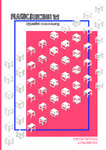| dc.creator | Grigoropoulos C.J., Doulos L.T., Zerefos S.C., Tsangrassoulis A., Bhusal P. | en |
| dc.date.accessioned | 2023-01-31T08:27:18Z | |
| dc.date.available | 2023-01-31T08:27:18Z | |
| dc.date.issued | 2020 | |
| dc.identifier | 10.1016/j.wasman.2019.10.010 | |
| dc.identifier.issn | 0956053X | |
| dc.identifier.uri | http://hdl.handle.net/11615/73711 | |
| dc.description.abstract | The scope of this paper is to identify the benefits of lamp recycling from the domestic sector. Data related to the recycled lamps was obtained from two recycling companies and were compared to those related to the waste lamps from the domestic sector. This was achieved by a new methodology which uses two alternative approaches. The first one is dependent on previous research data in relation to the number of active lamps while the second one elaborates on electricity consumption and sales data, in order to define the corresponding number of active lamps., The wasted amount of glass, metal and plastic is calculated along with the energy savings, the annual emissions of CO2-eq, the economic benefit from their sale and the potential reduction of hazardous waste, such as mercury to solid waste landfills under various scenarios. The amount of recovered materials collected by the Hellenic recycling companies contributes to a reduction of CO2-eq by 1298 tonnes, which falls significantly short of the CO2-eq that could have been saved 3108–5463tonnes if all the lamps were recycled. Furthermore, the recycling companies have an annual economic benefit of €32,251 which could be increased by €122,725 if all lamps were recycled together with the proper recycling of 3.4 kg of mercury, which was disposed in the environment. Finally, a future scenario was examined, in which all lamps in the domestic sector were assumed to be LEDs, an issue that can affect the viability of the recycling factories and it was proved that these might be affected. © 2019 Elsevier Ltd | en |
| dc.language.iso | en | en |
| dc.source | Waste Management | en |
| dc.source.uri | https://www.scopus.com/inward/record.uri?eid=2-s2.0-85073148203&doi=10.1016%2fj.wasman.2019.10.010&partnerID=40&md5=b0446bfaf3b47f68f59ce21d32e855d5 | |
| dc.subject | Carbon dioxide | en |
| dc.subject | Economic and social effects | en |
| dc.subject | Electric lamps | en |
| dc.subject | Energy conservation | en |
| dc.subject | Light emitting diodes | en |
| dc.subject | Lighting | en |
| dc.subject | Domestic sector | en |
| dc.subject | Electricity-consumption | en |
| dc.subject | Mercury reduction | en |
| dc.subject | Potential reduction | en |
| dc.subject | Recovered materials | en |
| dc.subject | Recycling companies | en |
| dc.subject | Recycling factories | en |
| dc.subject | Solid waste landfill | en |
| dc.subject | Recycling | en |
| dc.subject | carbon dioxide | en |
| dc.subject | electronic equipment | en |
| dc.subject | energy use | en |
| dc.subject | estimation method | en |
| dc.subject | future prospect | en |
| dc.subject | hazardous waste | en |
| dc.subject | landfill | en |
| dc.subject | recycling | en |
| dc.subject | solid waste | en |
| dc.subject | waste management | en |
| dc.subject | Article | en |
| dc.subject | carbon footprint | en |
| dc.subject | domestic waste | en |
| dc.subject | economic aspect | en |
| dc.subject | energy conservation | en |
| dc.subject | energy consumption | en |
| dc.subject | environmental monitoring | en |
| dc.subject | environmental planning | en |
| dc.subject | environmental sustainability | en |
| dc.subject | fluorescent lighting | en |
| dc.subject | hazardous waste | en |
| dc.subject | household | en |
| dc.subject | landfill | en |
| dc.subject | priority journal | en |
| dc.subject | recycling | en |
| dc.subject | waste component removal | en |
| dc.subject | household | en |
| dc.subject | illumination | en |
| dc.subject | recycling | en |
| dc.subject | waste management | en |
| dc.subject | mercury | en |
| dc.subject | Hazardous Waste | en |
| dc.subject | Household Articles | en |
| dc.subject | Lighting | en |
| dc.subject | Mercury | en |
| dc.subject | Recycling | en |
| dc.subject | Waste Management | en |
| dc.subject | Elsevier Ltd | en |
| dc.title | Estimating the benefits of increasing the recycling rate of lamps from the domestic sector: Methodology, opportunities and case study | en |
| dc.type | journalArticle | en |


